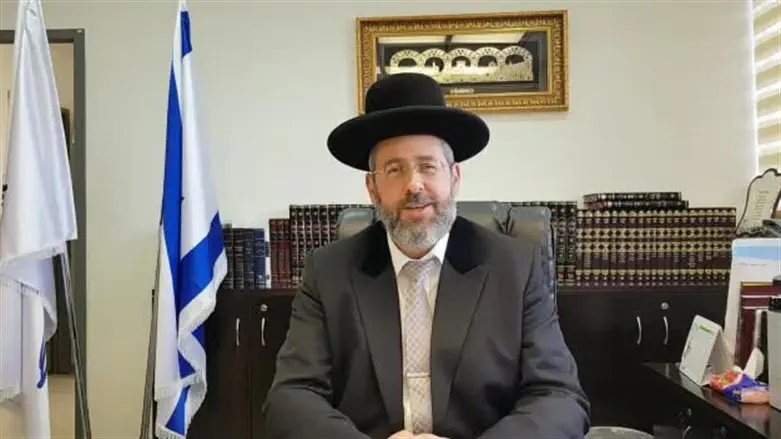
Rabbi David Lau, Israel's Ashkenazi Chief Rabbi, has stated his intention to establish a special beit din (religious court) whose judges will ascertain the religious status of new immigrants to Israel, in light of the expected massive influx of refugees from the war in Ukraine, many of whom will likely not possess any documentation.
According to a report in Israel Hayom, Rabbi Lau wrote a letter to Attorney-General Gali Baharav-Miara on Tuesday, asking to clarify the level of authority granted to religious court judges to determine Jewish status. New arrivals from Ukraine are temporarily being given tourist status in the country.
"The war in Ukraine has displaced thousands of people," Rabbi Lau wrote. "Many of them have fled from their homes and were unable to provide themselves with the necessary documentation to prove their Jewishness. In order to assist in this situation, I plan to establish a special beit din whose judges will use all means to help these people prove their Jewishness. In order to expedite this process given the overload of cases the religious courts already deal with, I will be choosing three retired judges to sit on this court, judges who have a great deal of experience in this area."
Several hundreds of refugees have already arrived of the expected tens of thousands in the coming days and weeks. According to several Chabad rabbis, in the last week and a half, 30 thousand Ukrainian Jews were rescued from towns and cities where fighting is going on. Due to the life-threatening nature of the situation, rescues were also made on Shabbat, when all such activities such as travel and telephone calls are usually forbidden but are mandated in cases where lives could otherwise be lost.
According to Chabad sources, many of these Jews have been sent to other European Jewish communities but around half of them have opted to remain in refugee centers set up within Ukraine's borders, in the cities of Lviv, Chernovitz, and Uzhorod, as they intend to return to their homes once the conflict is over.

